
Dr. Stefan de Jong is a post-doctoral researcher at The University of Manchester (MIoIR) and Leiden University (CWTS). He studies university strategies for impact of the social sciences and humanities. Stefan obtained a BSc in Cell Biology from Wageningen University and an MSc in Innovation Studies from Utrecht University. Stefan worked as researcher at the Rathenau Instituut, studying societal impact and evaluation of academic research. As an external PhD student at Leiden University (CWTS) he wrote a dissertation on the relationship between Dutch impact policies and academic impact practices: ‘Engaging scientists: organising valorization in the Netherlands’ (successfully defended in 2015). Stefan regularly hosts societal impact workshops for academics.
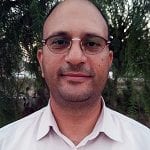
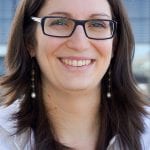

José Gabriel Andrade holds a European PhD in Communication Sciences from the Catholic University of Portugal and a Master in Communication Sciences: Communication, Organisation and New Technologies from the Portuguese Catholic University with the support of the high level Scholarship Programme of the European Union for Latin America (Alban). He holds a degree in Communication Sciences by the Catholic University of Santos, São Paulo-Brazil. José Gabriel Andrade is assistant lecturer at the School of Philosophy and Social Sciences (FFSC) - Braga - and at the School of Human Sciences (FCH) - Lisbon - of the Catholic University of Portugal (UCP); researcher at the Research Center for Philosophical and Humanistic Studies (CEFH, UCP) in the area of Communication, Media and Audience; researcher at the Research Centre for Communication and Culture (CECC, UCP) in the area of Media, Technology, Contexts; and visiting researcher at the Brazil Institute of King's College - London.

Dr Paul Benneworth is a senior researcher at the Center for Higher Education Policy Studies, the University of Twente, the Netherlands, and also at Agderforskning, Kristiansand, Norway. Paul’s research interests are related to the relationships between universities and societal change with a particular focus on social sciences and humanities research, as well as societal change in old industrial regions. Paul’s Ph.D. explored the ways that old industrial regions create new opportunities for economic development through the ways that their existing industries and technologies are cross-fertilised within wider global networks in ways that drive various kinds of modernisation processes, economic, social, political, institutional, and environmental. In 2010-13 he was Chief Scientist of the Humanities in the European Research Area ERANET network Joint Research Programme “The public value of arts & humanities research”. Paul has undertaken a wider range of basic and applied research activities for a variety of funders including research councils, HE funding councils, the OECD, government departments across Europe, the European Commission and a number of regional authorities. He is one of the authors of “The Impact and Future of Arts & humanities research” (2016, forthcoming, Palgrave).
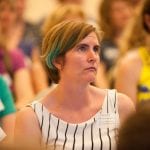
Esther De Smet is a senior research policy advisor at Ghent University. Holding both a Master in Classical Studies and an Advanced Master in Media & Communication, she has been working at her alma mater since 2003. After a detour via the Department for Educational Policy (implementing the new European educational structure and co-ordinating the Education and Examination Code) and a stint as project management of GUIDe (Ghent University Information Desk) kick-starting a brand new customer and information service), Esther joined the Research Department in late 2010. There she took on the role of knowledge broker and became one of the project leads on the institutional research information system (GISMO). In 2014 she spearheaded the new institutional policy on societal value creation. Since then she has been invited to sit on panels and/or participate in workshops on research policy, impact, and research communication. She leads workshops on communication strategy, impact, digital presence and social media. Esther is always looking for ways to create a stimulating and nurturing research environment and to put her university’s research on the local and global map. Twitter is her medium of choice: she is the proud curator of @ResearchUGent making her a frontrunner in harnessing social media in Flemish research communication since 2012.
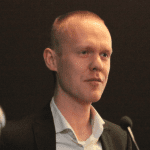
Tim Engels is head of the Departement of Research Affairs and Innovation at the University of Antwerp. Trained in psychology (PhD Vrije Universiteit Brussel), he became responsible for research evaluation at the University of Antwerp as of 2006. He supervises the UAntwerpen group of the Flemish Centre for R&D Monitoring (ECOOM) since 2009. Under his leadership the Flemish Academic Bibliographic Database for the Social Sciences and Humanities (VABB-SHW) has been set up and updated yearly. His research focuses on research evaluation and publication patterns in the social sciences and humanities.
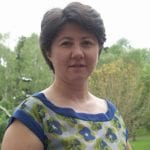
Professor Ioana Galleron is chair of ENRESSH. She is professor of Digital humanities in the University Paris III - Sorbonne Nouvelle and a specialist in French language and literature of the Ancien Régime. .

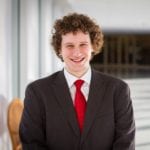
Bradley Good is currently a Ph.D student at the Irish School of Ecumenics, Trinity College Dublin, focusing on anti-racism education and refugees in Ireland. His previous academic background is in Cultural Anthropology. Bradley originally is from Indianapolis, IN USA and received both his Bachlors and Masters degrees from Indiana University. In his previous employments, he most notably worked as a Program Coordinator for the IU Chinese Flagship Program and as an Academic Advisor at Ivy Tech Community College. Bradley often works with and volunteers for refugee and migrant advocacy organizations in Dublin and is a member of Welcome Refugees, a student-led campaign in Ireland.
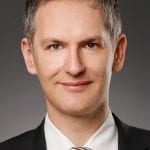
Alexander Hasgall (Dr. phil.), born 1974, is scientific coordinator at the University of Geneva. In this position, he is responsible for the program “Performances de le recherche en sciences humaines et sociales”. This program aims at developing instruments to make the quality and the impact of research in the humanities and social sciences visible and evaluate it appropriately. Alexander Hasgall wrote his PhD about the politics of truth, justice and recognition in relation to the last military dictatorship in Argentina. Before, he worked as journalist, in market research and in the NGO-Sector. Hestudied philosophy, contemporary history, and social and economic history at the University of Zurich and the Free University of Berlin.
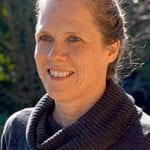
Carola Hein is Professor and Head, Chair History of Architecture and Urban Planning at TU Delft. She has published widely on topics in contemporary and historical architectural and urban planning – notably in Europe and Japan. Among other major grants, she received a Guggenheim Fellowship to pursue research on The Global Architecture of Oil and an Alexander von Humboldt fellowship to investigate large-scale urban transformation in Hamburg in international context between 1842 and 2008. Her current research interests include transmission of architectural and urban ideas along international networks, focusing specifically on port cities and the global architecture of oil. She serves as Editor for the Americas for the journal Planning Perspectives and as Asia book review editor for the Journal of Urban History.
Her books include: The Capital of Europe. Architecture and Urban Planning for the European Union (2004), Port Cities: Dynamic Landscapes and Global Networks (2011), Brussels: Perspectives on a European Capital (2007), European Brussels. Whose capital? Whose city? (2006), Rebuilding Urban Japan after 1945 (2003), and Cities, Autonomy and Decentralisation in Japan. (2006), Hauptstadt Berlin 1957-58 (1991). She has also published numerous articles in peer-reviewed journals, books, and magazines.
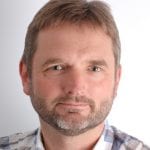
Dr Jon Holm is responsible for coordination national research evaluations in the Division for Science at the Research Council of Norway. He holds a PhD in literature and had been working as a research administrator and manager since 2005. His current research interests are in research evaluation methodologies.
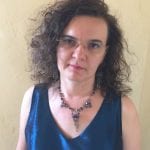
Arleen IONESCU is Professor of English Literature and Critical Theory at University of Ploieşti (UPG). Her major research and teaching interests are in the fields of Modernist prose and Critical Theory. She has published widely on James Joyce and other related aspects of modernism, as well as on Maurice Blanchot, Jacques Derrida, Samuel Beckett, and William Shakespeare. Her monograph The Memorial Ethics of Libeskind’s Berlin Jewish Museum is forthcoming with Palgrave Macmillan (February 2017). As the Dean of the Faculty of Letters and Sciences, she has experience in research evaluation. She is member of the University Research Council and she has been involved in peer review for articles and books in Romania and abroad.
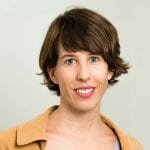
Marlene Iseli has been working for the Swiss Academy of Humanities and Social Sciences (SAHS) since 2010. Issues tied to the visibility and valorisation of research in the field of SSH has been a major topic in her daily working-life for several years. Having dedicated her Phd (in 2011 in General Linguistics at the University of Berne) to questions about knowledge transfer and the applicability of academic (linguistic) skills and contents on the job market, her work at the Academy keeps focussing on questions as to the science policy, governing science, the scientific culture of the humanities and their contribution to society. One of her last projects tried to underline the need and pragmatic value of the humanities and their graduates (abouthumanities.sagw.ch).
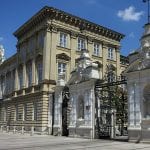
Grzegorz Król received his PhD in Psychology, at the University of Warsaw. He is an assistant professor in the Department of Psychology and Sociology of Management, Faculty of Management at the University of Warsaw. For over a decade Grzegorz has been involved in EU projects in the area of public health and harm reduction, and managed several dozens of international conferences. His current work at the University of Warsaw focuses on issues of multitasking and overflow. He also develops and maintains multiplatform software for running psychological experiments.
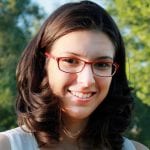
Karolina Lendák-Kabók was born January 9th, 1986 in Novi Sad, Serbia. She earned her bachelor's and master’s degree at the Faculty of Law, University of Novi Sad. She passed her bar exam in Novi Sad. She is a PhD candidate at the Center for Gender studies, University of Novi Sad, Serbia. Her research focuses on women members of the Hungarian national minority and their position in the higher education system of Serbia. She is an author and co-author of more than ten scientific papers, presented in journals and both international and national conferences. Karolina speaks Hungarian, Serbian and English, and has a B1 level knowledge of the German language. In 2013 she was awarded the three-year "Collegium Talentum" scholarship funded by the Hungarian government. In the winter semester of the 2014/2015 academic year she was included in the Hungarian National Excellence Program for PhD students living outside the borders of Hungary. She is an active member of the Association of Hungarian PhD Students and Researchers in Vojvodina, Serbia. She is a vice-coordinator of gender trainings in GenderSTE, an EU funded Collaboration in Science and Technology (COST) action. She was a local organizer of the Gender in in research and in Horizon 2020 projects Training School at the University of Novi Sad, 3-4 of March, 2016. Karolina’s supervisor is Prof. Andrea Pető from the Gender Studies Department, Central European University (CEU), Budapest, Hungary.
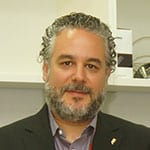
Dr. Sharon Link is the Director of the Research Authority at the University of Haifa since 2008 and has served as the chairman of the Forum of University Research Authority Directors of the Institutes for Higher Education in Israel (FURAD), and as Israel’s representative to the SECURITY PC of the European Union.
Dr. Link received his Ph.D. from The Technion, Israel in the field of Mass Disaster Management. His main fields of interest are policy making, standardization & discretion paradoxes, standards implementation, human behaviour during emergencies and mass disaster management and of course higher education systems.
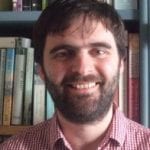
Dr. Sean Lucey is the Research Manager in the College of Business and Law. He is responsible for the management, development and support of research activity across the College, especially in the Cork University Business School and School of Law. This position involves developing and implementing the College’s research strategy, and identifying, initiating and supporting new and existing research collaborations and networks. I also promote research funding opportunities.
He also has an extensive academic background in medical humanities and history and have held teaching and research positions in the University of Liverpool, Queen’s University Belfast, Trinity College Dublin and Oxford Brookes University. Much of this work has been in multi-disciplinary contexts and I have taught and researched in history departments, medical schools, and public health units. I also have a track record of successfully competing for research funding and have received grants from Irish and British funding agencies including the Irish Research Council, Royal Irish Academy, British Academy and the Northern Ireland Executive. I have also worked on wider research projects funded by the Arts and Humanities Research Council (UK), Economics and Social Research Council (UK), and Wellcome Trust.
He also has an extensive publishing background. In 2015 Manchester University Press published my second monograph which explored welfare and healthcare reform in inter-war Ireland. Also in 2015, he co-edited a collection of essays which explores healthcare in comparative and regional settings in Britain and Ireland from 1850 -- this was published by the Institute of Historical Research, London. He has also published another monograph with University College Dublin Press and numerous journal articles and book chapters.

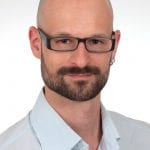
Michael Ochsner is President of the ENRESSH association.
He received his Ph.D. from the Institute of Sociology at the University of Zurich in 2014. Since 2009, he has been a research associate at the ETH Zurich in the CRUS-organized projects: “Developing and Testing Research Quality Criteria in the Humanities, with an emphasis on Literature Studies and Art History” and “Application of Bottom-up Criteria in the Assessment of Grant Proposals of Junior Researchers in the Social Sciences and Humanities”. Since 2013, he has also worked at the Swiss Centre of Expertise in the Social Sciences (FORS) at the University of Lausanne as a senior researcher in the team international surveys. His research interests include research evaluation; notions of research quality; qualitative, quantitative and mixed research methods; survey methodology; and welfare state research. He is vice-president of the EvalHum initiative, a European association for research evaluation in the SSH.
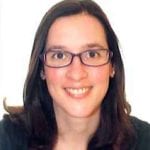
Julia is assistant professor at the University of Valencia since 2015. Her first degree was in Economics. Julia’s research interests relate to the study of science-society interactions, with a focus on researchers’ engagement in knowledge transfer and exchange, and the area of Social Sciences and Humanities (SSH). In July 2013 she defended her PhD entitled: “Science-society interactions in the Social Sciences and humanities: empirical studies of the Spanish council for scientific research“. She has been conducted most of her research (from 2008 to 2014) at INGENIO (CSIC-UPV). She is currently involved in a research project funded by the Spanish competitive funds aimed at exploring the relationship between academic excellence and societal impact (EXTRA Project). Building on the findings developed in the framework of her doctoral research on science-society interactions in SSH, Julia has published her findings in a range of academic journals as well as diverse dissemination platforms. Her teaching involves courses of management in diverse degrees from the Faculty of Economics of the Univeristy of Valencia.
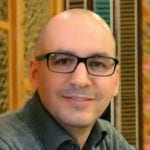
Pantelis M. Papadopoulos is an Associate Professor at the Centre for Teaching Development and Digital Media at the Faculty of Arts in Aarhus University. Dr Papadopoulos holds a BSc in Informatics, and MSc and PhD in Information and Communication Technologies in Education from the School of Informatics at Aristotle University of Thessaloniki. Before joining AU, he held postdoctoral positions at the International Institute for Software Technology at United Nations University (Macau SAR, China), and at Carnegie Mellon University in Qatar. He has worked in several funded research projects in Europe, Qatar, and Macau SAR, including openED 2.0, openSE, Arabiyyatii, and Kaleidoscope NoE. Dr Papadopoulos is also the project coordinator of the Erasmus+ project InnoEntre (Framework for Innovation and Entrepreneurship Support in Open Higher Education; KA200-2014-011; http://innoentre.com), focusing on innovative and entrepreneurial pedagogies. His research interests include Educational Technology, Game-Based Learning, Computer-Supported Collaborative Learning, Innovation and Entrepreneurship Education, and Open and Distance Education. His work is published in more than 45 top ranking international peer-reviewed journals and conferences. Dr Papadopoulos is the chief-editor of the upcoming book “Innovation and Entrepreneurship in Education”, published by ELIG (http://www.elig.org) and Emerald Publications. He is a member of the scientific committee in several top ranking international conferences (e.g., ICALT, EC-TEL, CSEDU, CSCL) and reviewer to major journals in his domain (e.g., Computers & Education; Educational Technology Research & Development; IEEE Transactions on Education). He is a member of the Institute of Electrical and Electronics Engineers (IEEE), the International Society of the Learning Sciences (ISLS), and the Association for the Advancement of Computing in Education (AACE).
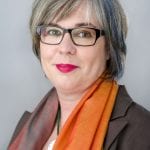
Andrea PETŐ is a Professor at the Department of Gender Studies at Central European University in Budapest, Hungary, a Doctor of Science of Hungarian Academy of Sciences. She has edited fifteen volumes in English, seven volumes in Hungarian and two in Russian. Her works have appeared in 16 different languages. She has also been a guest professor at the universities of Toronto, Buenos Aires, Novi Sad, Stockholm and Frankfurt. Her books include: Women in Hungarian Politics 1945-1951 (Columbia University Press/East European Monographs New York, 2003), Geschlecht, Politik und Stalinismus in Ungarn. Eine Biographie von Júlia Rajk. Studien zur Geschichte Ungarns, Bd. 12. (Gabriele Schäfer Verlag, 2007) and together with Ildikó Barna, Political Justice in Budapest after WWII (Politikai igazságszolgáltatás a II. világháború utáni Budapesten. Gondolat, Budapest, 2012 and 2015 by CEU Press). Her recent book is co-edited with Ayse Gül Altinay: Gendered Wars, Gendered Memories. Feminist Conversations on War, Genocide and Political Violence, Routledge, 2016. In 2005, she was awarded the Officer’s Cross Order of Merit of the Republic of Hungary by the President of the Hungarian Republic and the Bolyai Prize by the Hungarian Academy of Sciences in 2006.
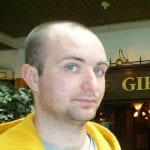
Antun Plenković received his master degree in sociology from the University of Zagreb in 2012, and in 2016 his university specialist degree in project management and the use of EU funds and programmes, from the same university. Since 2013, he has been a research administrator at the “Ivo Pilar” Institute of Social Sciences, working as an expert associate in science and as a project manager (mainly for the EU projects). He has been involved in many national and international projects regarding social sciences and humanities.
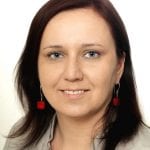
I work as the Director of the Centre for the Scientific Information at the University of Lower Silesia (ULS) and I am responsible for documenting publications of ULS’s researchers and giving advice on scientometrics and bibliometrics. I am also engaged in an open access movement in Poland. For instance, I translated the Open Journal Systems (OJS) from English to Polish. Moreover, I cooperate with many Polish journals’ publishers and editorial boards and I support them in improving publishing quality of their journals.
I am also a researcher. My main interests are the research evaluation (especially using national journal lists in the evaluation systems), and scientometrics and bibliometrics as well. As a member of the Scholarly Communication Research Group at the Adam Mickiewicz Univerisity in Poznan I am involved in the project Contemporary Polish Humanities in the face of the Challenges of Scientometrics, financed by the National Programme for the Development of Humanities in Poland (decision number 0057/NPHR3/H11/82/2014): http://sc.amu.edu.pl

Anna-Sofia Ruth works as coordinator at the Federation of Finnish Learned Societies, more specifically with the Publication Forum (JUFO). Publication Forum is a classification of publication channels created by the Finnish scientific community to support the quality assessment of academic research, based on the “Norwegian model”. The classification is being used as a quality indicator for research output within the funding model for universities.
She has a master's degree in Library and Information Science, and specialize in scholarly communication.
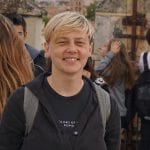
Jolanta Šinkūnienė is an associate professor at Vilnius University, Faculty of Philology, where she received her PhD in Humanities in 2011. Her doctoral thesis, postdoctoral fellowship work and most of the current research focus on various aspects of scientific discourse in SSH, frequently from cross-linguistic, cross-disciplinary and cross-generic perspectives. Research interests include tracing back research patterns and epistemological traditions of different disciplinary cultures within SSH and in comparison with other disciplinary fields, academic rhetoric, elements of persuasion in academic discourse, research publication practices, evaluation of research, academic identity aspects.
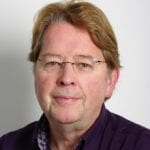
Dr Jack Spaapen received his training in sociology and cultural anthropology at the University of Amsterdam. His PhD (1995) is in science and technology studies (STS), focusing on methods for the evaluation of research in the context of societal and policy demands. He is senior policy advisor at the Royal Netherlands Academy of Arts and Sciences. His main areas of expertise are societal impact evaluation, research and innovation policy, responsible research and innovation and scientific advice. He has coordinated many Academy projects in these areas, and several EU projects, among others the FP7 SIAMPI project on productive interactions between science and society (2009-2012), and on Indicators for Responsible Research and Innovation, RRI (2014). For the OECD he co-chaired a project on the role of scientific advice in controversial issues in society (2013-2015). He represents the Academy in several national and European networks on R&D evaluation. He co-designed the national evaluation protocol for publicly funded research (Standard Evaluation Protocol - SEP). He is currently working on the development of an assessment framework for the humanities research in the Netherlands.

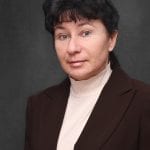
In 1987, Yulia Stukalina graduated from the Faculty of Foreign Languages of the University of Latvia, and was awarded the qualification of teacher, philologist and translator (Mg. philol.). In 1996, she was awarded Master’s Degree in Pedagogics. In 2012, she received her Doctor’s Degree in Educational Management at the University of Latvia. She further improved her qualification in Austria and Lithuania (within the Erasmus Programme). Yulia Stukalina has a teaching experience of more than 25 years. She is the author of twenty-five international scientific publications including those indexed in Thomson Reuters (8), Scopus, ScienceDirect and Ebsco. She is the author and co-author of seven study aids for students of Transport and Telecommunication Institute. Currently Yulia Stukalina is the Head of the Department of Humanities and Leading Researcher in Transport and Telecommunication Institute. She is also an expert of the Latvian Council of Science (in Management) and member of the Latvian Association of University Professors. Her research areas include ESP (English for Specific Purposes), Educational Management, Quality Management and Strategic Management in higher education. In 2008-2009, she participated in the European Social Fund Project “Practical Training for the TTI Students Acquiring Higher Education (in Transport and Logistics Enterprises)”.
Currently she is the head of the international multidisciplinary research project Learning with ICT use (co-funded by the Erasmus+ Programme) from Transport and Telecommunication Institute (period: 01.09.2014 – 31.08.2017).

Tramountanis Angelo is a Researcher at the National Centre for Social Research (EKKE) in Athens, Greece. His field of expertise is on "applied analysis of immigration policy”. He is a research fellow at the Institute for the Study of Migration and Diaspora (EMMEDIA), research institute of the University of Athens, and Co-ordinator of the Observatory on Combating Discrimination (OCD). Furthermore, he holds an MA in Migration Studies from the Sussex University, and a BA in Political Science and Public Administration from the University of Athens. In the past 15 years he has participated in a number of research projects regarding immigration, refugees and asylum seekers, and has published articles regarding the integration of immigrants, migration policy and refugee policy.
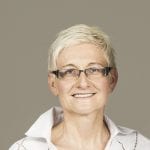
Mimi Urbanc graduated in Geography and History at the University of Ljubljana, Slovenia and acquired her Ph. D. in Geography at the University of Primorska in 2007. She is a senior research fellow and deputy director at the Research Centre of the Slovenian Academy of Sciences and Arts which is the biggest arts and humanities research institution in Slovenia. She has been principal investigator in several EU and national projects. Her research activities are connected with cultural landscapes, namely with landscape perception, perception of landscape changes, identity and landscape representations. She is the chief editor of the book series Thought, society, culture: Exploring Cultural Spaces of Europe published by Peter Lang Verlag and editorial board member of book series Geography of Slovenia and journal Acta geographica Slovenica, both published by Založba ZRC. She is a member of the Commission for the Standardization of Geographical Names of the Government of the Republic of Slovenia at The United Nations Group of Experts on Geographical Names, board member of The Permanent European Conference for the Study of Rural Landscape for Slovenia, member of the EUCALAND network (European Cultural and Agricultural Landscapes), and a bord member of ISCAR (International Scientific Committee on Research in the Alps). She has recently been a member of HERA (Humanities of European Research Area) International Assessment Panel and Polish National Science Centre for the fellowship program Polonez panel. She has been involved into developing ZRC SAZU's research feedback and amendments proposals to evaluation criteria and system in Slovenia.

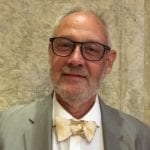
Professor Geoffrey Williams, MSc, PhD is co-founder and President of the EvalHum Initiative, a European association seeking to promote the Social Sciences and Humanities through improved evaluation procedures and impact studies. He is a former Vice President for International Relations at the Université de Bretagne-Sud, France (UBS), and has a particular interest in rankings and their application to the Social Sciences and Humanities. A linguist and lexicographer, he is a former president of the European Association for Lexicography - EURALEX. He is currently director of the Department for Document Management in UBS, and of the LiCoRN research group. He is a member of the Digital Humanities group of the LIDILEM research unit of the Université Grenoble Alpes. Professor Williams has published widely in his field and is a member of numerous academic societies.
